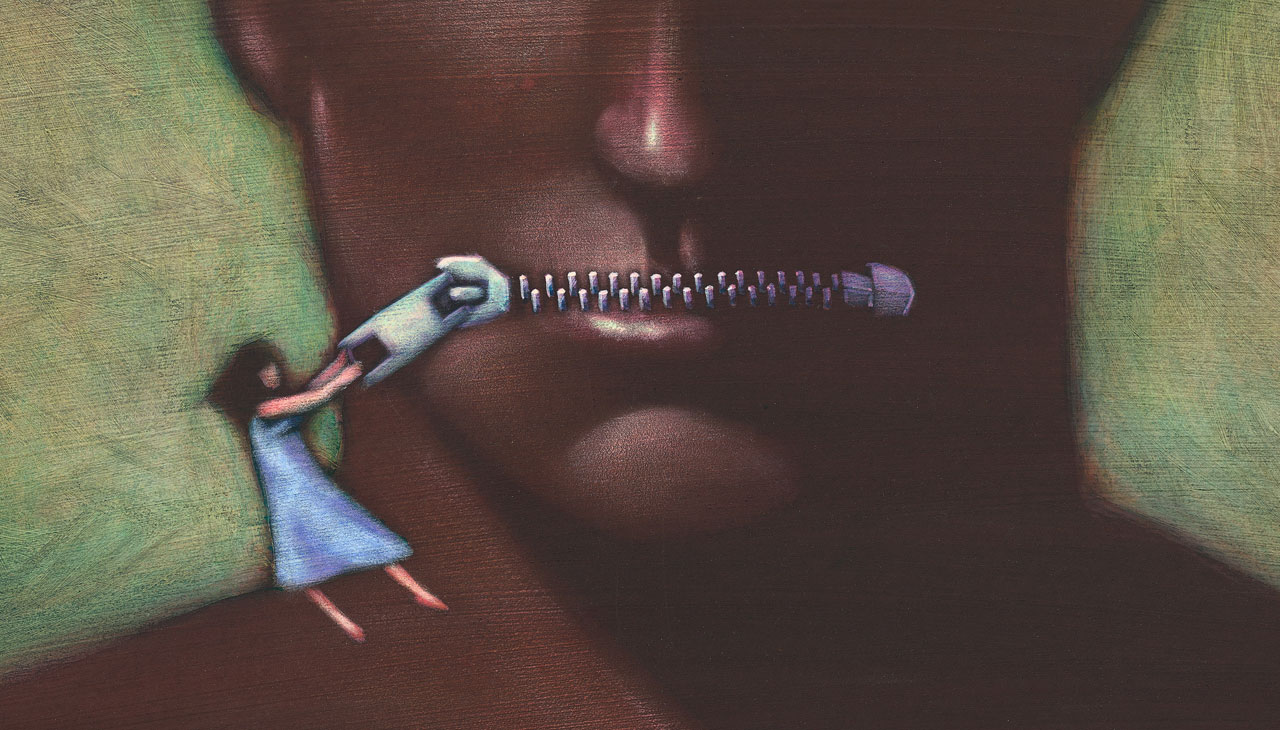
[OP-ED] The hill we climb to conquer censorship
MORE IN THIS SECTION
There has been an influx of changes in the United States— diversity, equity, and inclusion legislation aim to stop “woke” ideologies—book banning that oaths to retell new narratives of what history looked like—redacting textbooks that use unwelcome language—but our nation can not allow impunity to prevail any further, “for to be free is not merely to cast off one’s chains, but to live in a way that respects and enhances the freedom of others,” as Nelson Mandela brilliantly said.
Who killed DEI? Haunts me at night— its meaning, contradicting narratives that wield a sword of discord and containment—that the young immigrant child I once was, holds as I awaken thinking we have succeeded as a nation, to accept diversity of thought—but as Mahatma Gandhi said, “no culture can live if it attempts to be exclusive.”
Many stood fighting for DEI in this nation—Black history erasure ignores the strides, the importance of advocacy and activism that individuals like Martin Luther King, Jr, Rosa Parks, and Malcolm X exude—an extension of what being Black and fighting for civil rights was all about.
But diversity is ending, isn’t it? Do we savor this moment of stopping “woke” ideologies or relish our discontentment for not doing more? Texas begs the differ, with Senate Bill 17 imposing higher education institutions to ban their DEI offices and programs, and an equally abrasive move by Gov. DeSantis, who signed legislation to defund DEI programs in higher institutions because they present a “distraction from the core mission.”
But what is our mission as a nation, if not to do better by those we continue to fail, time and time again?
Can they erase us?
Recently, Miami-Dade County, Florida, banned Amanda Gorman's The Hill We Climb poem, which created a historical moment for voices that do not often have a platform to share their thoughts and convey a clear message: unity and hope.
According to the complaint issued by a parent, the poem causes “confusion and indoctrinate students,” a sentiment echoed as book bans rise—affecting marginalized voices and failing to acknowledge, once again, that words like “slavery” and “racism” are nouns used predominantly throughout history to distinguish and dehumanize individuals of their significance, devalue and appraise their dignity with clear intent— the hill we climb today may seem different to some, but equally the same to others— to conquer censorship—to conquer the plague affecting our freedom of expression and young people’s ability to access true history—their history— our history, that is the foundation of change.
In a tweet, U.S. Secretary of Education Miguel Cardona wrote, “A lot of the recently banned books include stories of change, progress, and stories about communities of color. These books hold a lot of history. You cannot erase history, and I will challenge anyone who tries to.”
PEN America reports a 28% increase in book banning from July- December 2022—of the 874 unique banned book titles thus far in the school year, 26% present LGBTQ+ characters or themes, and within this category, 8% include transgender characters. However, 385 books banned include themes or instances of violence and physical abuse (44%), and content on mental health, bullying, suicide, substance abuse, and sexual wellbeing were also banned.
RELATED CONTENT
“The content of banned books illuminates how the movement to censor books affects a diverse and varied set of identities, topics, concepts, and stories,” PEN America said.
One of the most banned books in the first half of the 2022-2023 school year included: Gender Queer, which Maria Vazquez, Superintendent of Orange County Public Schools in Florida, said in an interview with AL DÍA was due to pornography— Florida has one the highest rates of book removals in the country, as researched by PEN America.
Although OCPS has only banned four books at the district level, Vazquez says, “I would venture to say that we have a lot of support in place for our students.”
Last month, PEN America, Penguin Random House, diverse authors, parents, and students in Escambia County, Florida, filed a federal lawsuit “challenging removals and restrictions of books from school libraries that violate their rights to free speech and equal protection under the law.”
Based on the Florida Department of Education, the examples of rejected material referencing social justice, taking a knee, and other contents of ‘concern’ do not align with Florida law. Although book banning has a significant prevalence in Florida, it has made its way into other states: Texas, Missouri, Utah, South Carolina, and Pennsylvania, to name a few.
But to remove a book from a shelf, to redact its content, is more than a “concern,” it says you hold the power to erase history, and you too, are trying to erase its people.
“They’ll see how beautiful I am/And be ashamed— I, too, am America,” said Langston Hughes in his poem “I, Too.”







LEAVE A COMMENT:
Join the discussion! Leave a comment.